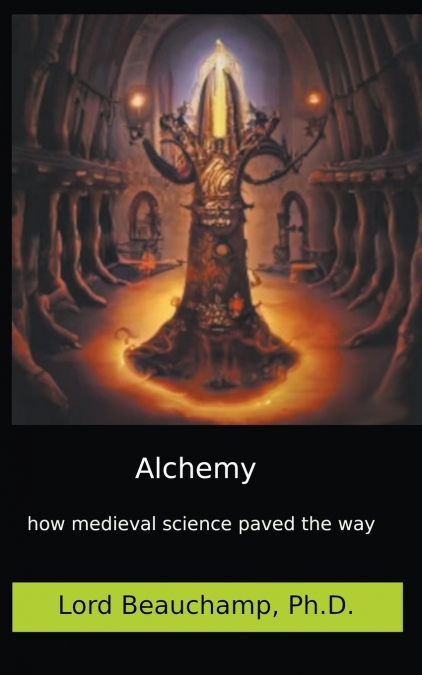
Lord Ph.D. Beauchamp
Medieval alchemy was a fascinating discipline that emerged during the Middle Ages and persisted until the early modern period. It encompassed a range of practices and beliefs that sought to transform and manipulate matter, particularly in the pursuit of turning base metals into noble metals like gold and silver. However, alchemy was not solely concerned with metallurgy; it also encompassed elements of philosophy, medicine, and spiritual pursuits. During the medieval period, alchemy was deeply rooted in both Greek and Arabic traditions. Greek philosophers such as Aristotle and the Hellenistic alchemist Zosimos of Panopolis influenced early alchemical theories, while Islamic scholars made significant contributions to the field through their translations and commentaries on ancient Greek texts. Alchemy was seen as a secretive and mystical practice, and alchemists often used symbolic language and allegories to convey their knowledge. They believed in the concept of transmutation, which involved the transformation of substances from one form to another. This idea was not limited to metals; alchemists sought to transmute the self and achieve spiritual enlightenment as well. One of the primary goals of alchemy was the creation of the Philosopher’s Stone, a legendary substance that was believed to possess transformative powers. It was thought to have the ability to transmute base metals into noble metals and grant eternal life. The quest for the Philosopher’s Stone was a central focus of many alchemists during the medieval period. Alchemy also had significant overlaps with early chemistry and medicine. Alchemists developed laboratory techniques, experimental methods, and apparatus that laid the groundwork for modern chemistry. They experimented with various substances, attempting to purify them and create new compounds. These experiments eventually led to advancements in the understanding of chemical processes. Over time, the practice of alchemy gradually evolved into modern chemistry, as scientific methods and approaches gained prominence. The emergence of the scientific method in the 17th century, coupled with the work of figures like Robert Boyle, Antoine Lavoisier, and others, marked a shift away from the mystical and spiritual aspects of alchemy towards a more empirical and evidence-based approach.While alchemy did not achieve its primary goal of turning base metals into gold or discovering the Philosopher’s Stone, its legacy can still be seen in the development of chemistry and the understanding of natural processes. It also played a significant role in shaping the philosophical and cultural landscape of the Middle Ages. Alchemists had literally skin in the game, modern day scientists don’t.